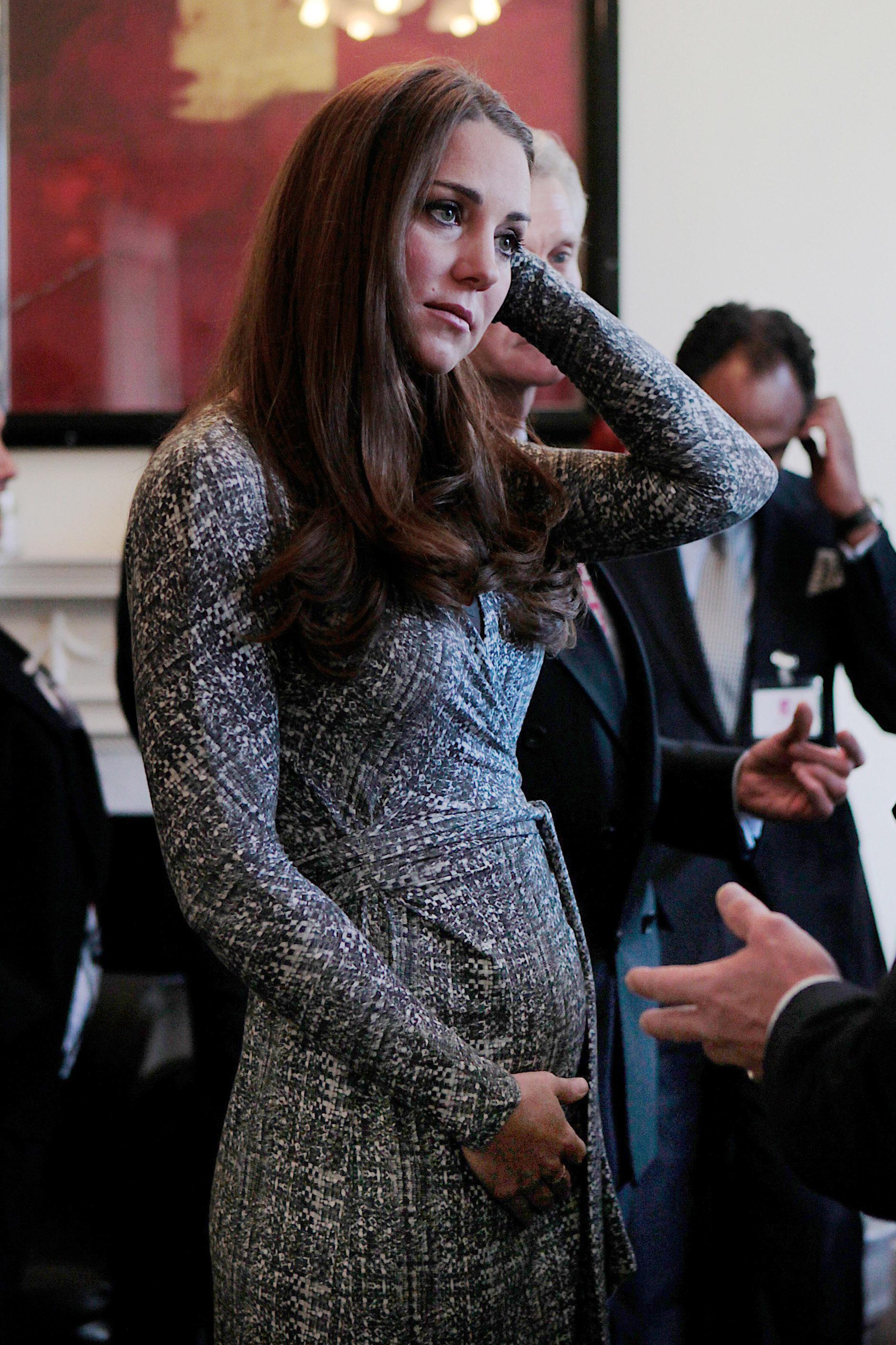A strange fracas is currently under way across the pond, and it began with, of all things, an erudite and witty lecture by an award-winning novelist. Hilary Mantel, the Booker Prize-winning author of Wolf Hall and Bring Up the Bodies—novels about Thomas Cromwell and the court of Henry VIII—delivered the talk at a London Review of Books event earlier this month, and it ran under the title “Royal Bodies” in the magazine’s latest issue.* Roughly speaking, the essay is about the British Monarchy as entertainment. In it, Mantel says that the Duchess of Cambridge, previously known as Kate Middleton, appears “to have been designed by a committee and built by craftsmen, with a perfect plastic smile and the spindles of her limbs hand-turned and gloss-varnished.”
The British tabloids indignantly called the remarks a “slur” and a “scathing attack,” which was silly enough, albeit fairly unsurprising. But then Prime Minister David Cameron decided to offer his own tuppence worth, calling the remarks “completely misguided and completely wrong.” A full-throated defense of the Duchess by a politician is hardly shocking, perhaps, given her considerable popularity. But both Cameron and the tabloids have fundamentally misunderstood Mantel’s speech—and are, in fact, essentially proving her point.
“Royal Bodies” is nearly 6,000 words long, and it may be safe to assume that Cameron simply didn’t read it. Only a relatively small part of the essay deals directly with the Duchess of Cambridge. The rest is largely about the reproductive tribulations of Henry VIII and his wives and the contemporary public obsession with fertility, pregnancy, and the Queen Consort’s outward appearance. Mantel talks about seeing Prince Charles in person and meeting Queen Elizabeth II, and describes the awe that many people still clearly feel in the presence of royalty. “Along with the reverence and awe accorded to royal persons goes the conviction that the body of the monarch is public property,” she writes. “We are ready at any moment to rip away the veil of respect, and treat royal persons in an inhuman way, making them not more than us but less than us, not really human at all.”
Of course, this is not the sort of thing somebody would say if one’s primary interest was to take shallow, petty stabs at members of the Royal Family—and that’s precisely the point. Reminding us that “cheerful curiosity can easily become cruelty,” Mantel makes a plea: “I’m not asking for censorship,” she writes. “I’m not asking for pious humbug and smarmy reverence. I’m asking us to back off and not be brutes.”
So who’s being the brute here? Mantel in daring to suggest that the Duchess of Cambridge’s primary function as Royal spouse is to reproduce and to appear as pretty and inoffensive as possible, or Fleet Street and Downing Street in blindly defending the Duchess from perceived injustice with, well, even more smarmy reverence?
The answer, it seems to me, is obvious. And “Royal Bodies” is well worth reading in full. It casts considerable light on, among other things, the very fracas it has blamelessly caused.
* Correction, Feb. 19: This post originally misstated the title of Hilary Mantel’s second novel about Thomas Cromwell.
